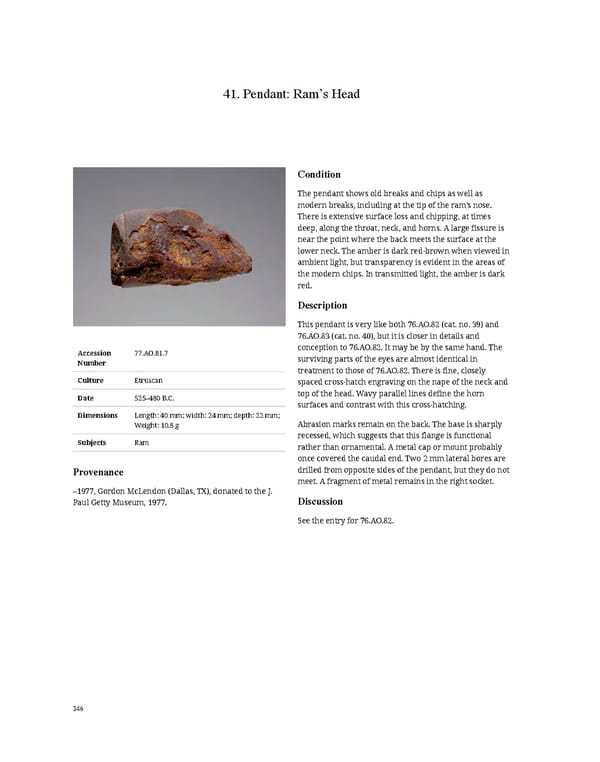41. Pendant: Ram’s Head Condition The pendant shows old breaks and chips as well as modern breaks, including at the tip of the ram’s nose. There is extensive surface loss and chipping, at times deep, along the throat, neck, and horns. A large fissure is near the point where the back meets the surface at the lower neck. The amber is dark red-brown when viewed in ambient light, but transparency is evident in the areas of the modern chips. In transmitted light, the amber is dark red. Description This pendant is very like both 76.AO.82 (cat. no. 39) and 76.AO.83(cat. no. 40), but it is closer in details and Accession 77.AO.81.7 conception to 76.AO.82. It may be by the same hand. The Number surviving parts of the eyes are almost identical in treatment to those of 76.AO.82. There is fine, closely Culture Etruscan spaced cross-hatch engraving on the nape of the neck and Date 525–480 B.C. top of the head. Wavy parallel lines define the horn surfaces and contrast with this cross-hatching. Dimensions Length: 40 mm; width: 24 mm; depth: 22 mm; Weight: 10.8 g Abrasion marks remain on the back. The base is sharply recessed, which suggests that this flange is functional Subjects Ram rather than ornamental. A metal cap or mount probably once covered the caudal end. Two 2 mm lateral bores are Provenance drilled from opposite sides of the pendant, but they do not meet. A fragment of metal remains in the right socket. –1977, Gordon McLendon (Dallas, TX), donated to the J. Discussion Paul Getty Museum, 1977. See the entry for 76.AO.82. 246
 Ancient Carved Ambers in the J. Paul Getty Museum Page 255 Page 257
Ancient Carved Ambers in the J. Paul Getty Museum Page 255 Page 257